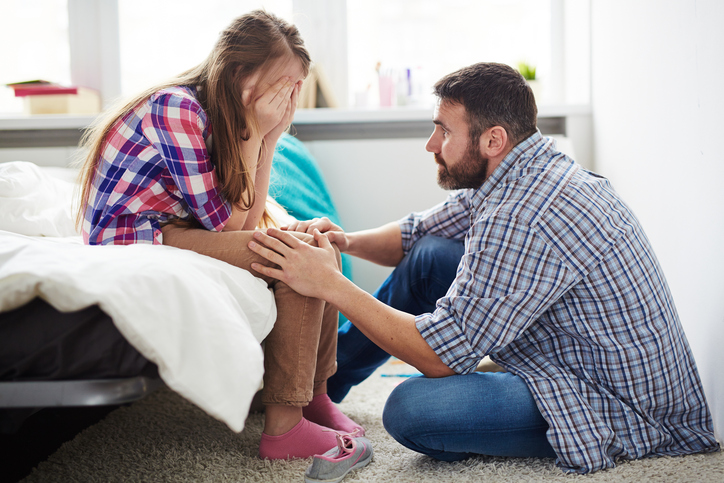When first confronted with the concept of childhood depression, the normal reaction would be: “What does a child have to be depressed about?”
The question reveals two misconceptions most people have about childhood. The first reveals the general lack of understanding about depression. It is more than just the occasional bouts of sadness and feeling “down” when confronted with life’s difficulties. Depression is far more serious, more persistent, and can affect how we normally function.
The second misconception we have about childhood depression is that we generally believe childhood to be a happy, carefree period of our lives. And yet, we must keep in mind that children are powerless and have no control over their own lives. Now, imagine living day by day in this kind of frightening state.
When you are an adult and not suffering from depression, you always have the choice to change this state of affairs. But children are different because they do not have this choice yet, and hence the frustration that sets in as a result.
Causes
So if children, like adults, also get depressed, what causes childhood depression? Like adult depression, there is no clear-cut cause of childhood depression. There are certain risk factors in the lives children however which make them predisposed to childhood depression or could “trigger” the depressive state to set in. These risk factors include:
- Family history of mental illness or suicide
- Abuse, including physical, emotional, or sexual
- Chronic illness
- Significant family events, such as the loss of a parent to death, divorce or abandonment
It should be noted that each child is different and so the factors that lead to childhood depression may also be distinct with different causes for each one. What is important is timely identification that there is a problem so that the proper treatment plan may be adopted.
Symptoms
Childhood depression manifests itself through the following signs:
- Persistent sadness and/or irritability that is more extreme than a child’s oft-usual temper tantrum
- Low self-esteem or feelings of worthlessness
- Loss of interest in activities, including those previously enjoyed
- Change in appetite and marked weight loss or gain
- Change in sleep patterns, either unable to sleep or unable to stay asleep or waking up too early and unable to fall back to sleep
- Difficulty concentrating
- Anger and rage
- Headaches, stomachaches and other physical malaise seemingly without cause
- Becomes either more lethargic or more hyperactive
- Recurring thoughts of death or suicide
If the child displays many of the symptoms listed above for longer than a few weeks, then childhood depression could be a possibility. It is normal for children to feel “down” on occasion, especially if there is a perceivable cause, such as disappointment in school or loss of a loved one. But if the feelings persists and they start to interfere with the child’s normal functioning, then seek professional help.







Be First to Comment